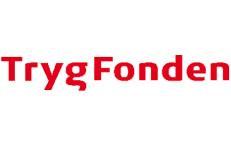Prevalence of low well-being, perceived stress and unhealthy behaviors among Danish high school students is high. However, few randomized controlled trials have been conducted to address this, and previous health promotion interventions have tended to focus on single behaviors. However, much evidence indicates that behavioral risks among adolescents are interrelated and cluster. Also, a recent systematic review concluded that interventions targeting multiple adolescent behaviors simultaneously via school-based interventions appear to be the most effective way to promote healthy behaviors among adolescents. Therefore, the aim of the Healthy High School (HHS) study was to promote well-being by preventing 1) stress and improving 2) sleep, 3) sense of community, 4) regular physical activity (PA) and 5) regular meals among Danish high school students.
Purpose
The aim of the PhD project is to contribute to the development, implementation and evaluation of the HHS study with a special focus on the stress preventive initiatives.
Research questions:
- To present the empirical and theoretical evidence for stress preventive initiatives including synthesizing the results from a systematic literature search and to describe the development of the stress preventive initiatives as well as the evaluation design.
- To conduct a systematic process evaluation of the stress preventive initiatives of the HHS study including barriers and facilitators for the implementation processes.
- To determine the effect of the HHS study on self-reported stress (secondary outcome) at the end of the school year in which the intervention is delivered.
Methods
The HHS study was designed as a two-armed cluster-randomised controlled trial. Thirty high schools across Denmark were randomly allocated to the intervention (15 schools) or control (15 schools) group. We collected the following data about stress for the effect evaluation: 1) Self-reported questionnaires from students (baseline: August 2016 and 1st follow-up: May 2017) and 2) monthly registration of student’s perceived stress by text message data (September 2016 – June 2017). The implementation process will be evaluated thoroughly by mixing methods.
Project period
1 May 2016 – 1 May 2019.
Funding
TrygFonden.
